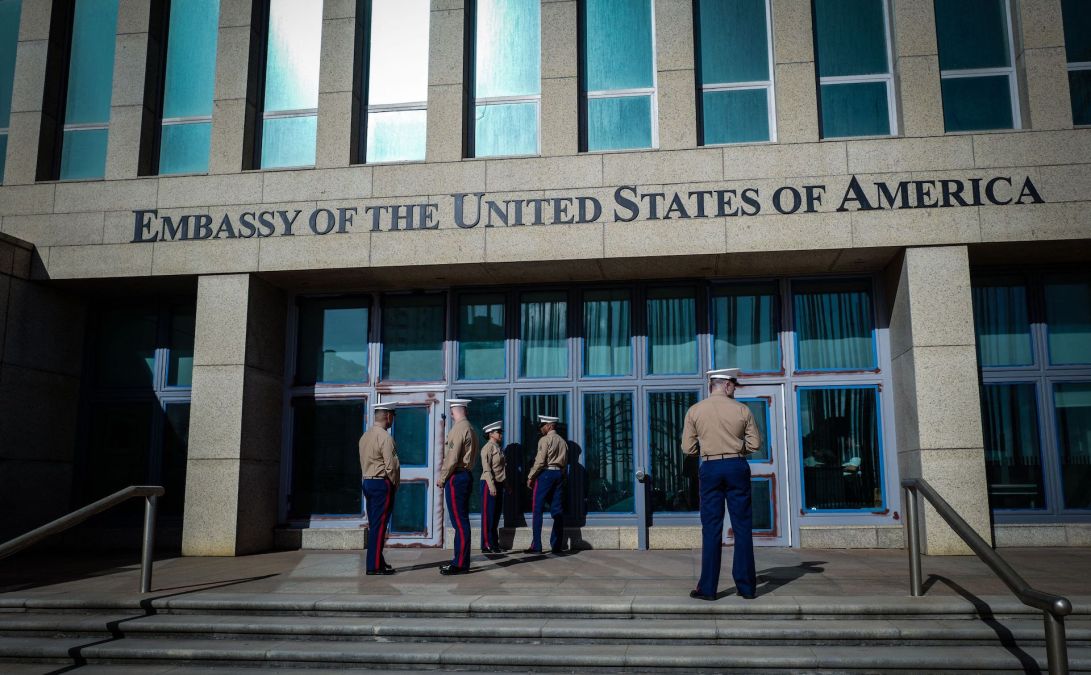Lawmakers question how ‘Havana syndrome’ is affecting DOD

New legislation proposed by a bipartisan group of House lawmakers would require the Defense Department to brief Congress on how anomalous health incidents are affecting military and civilian personnel, and to also form a strategic plan to help prevent and respond to future risks.
In 2016, State Department officials in Havana, Cuba, started reporting experiences with mysterious, unexplainable medical symptoms impacting their capacities to serve. Intelligence and military staff operating in the U.S., Russia, Serbia, Vietnam, India, Colombia, France, Taiwan and other nations have since recorded similar complications associated with such anomalous health incidents (AHI), or what is now also referred to as “Havana syndrome.”
Often, those suffering from AHI report severe dizziness, headaches, nausea, vertigo, hearing loss, vision problems, anxiety, cognitive difficulties, fatigue and memory loss.
The precise cause of Havana syndrome still remains unclear, but experts have suggested that a microwave weapon or directed-energy device could be a possible source. Five U.S. intelligence agencies previously concluded in their own federal assessment that the primary cause was likely not a U.S. adversary. However, the New York Times reported on Monday that the House Intelligence Committee has moved to look into the handling of that investigation and possibly challenge those conclusions.
The members of Congress behind this new bill noted in their announcement that the National Defense Authorization Acts for fiscal 2022 and fiscal 2023 included provisions mandating interagency coordination on AHI, and explicit reporting requirements for the State Department — but not the Pentagon.
“I’ve spoken directly with public servants, including from Virginia, impacted by anomalous health incidents. These Americans include U.S. diplomats, servicemembers, intelligence officers, and civilian personnel. As a former CIA case officer and member of the U.S. House Permanent Select Committee on Intelligence, I believe that lawmakers and the Pentagon must better understand the extent of these incidents and develop a strategy to address the issue,” Rep. Abigail Spanberger, D-Va., said in a statement.
Spanberger introduced the new bill last week alongside Reps. Brad Wenstrup, R-Ohio, Rick Crawford, R-Ark., Don Bacon, R-Neb., and Trent Kelly, R-Miss., and it was subsequently referred to the House Armed Services Committee.
Text of the Initiating Imperative Reporting on Anomalous Health Incidents Act (or IIR on AHI Act) was shared with DefenseScoop.
Specifically, the legislation would direct Pentagon officials to supply lawmakers in both chambers of Congress with new information regarding all the confirmed or suspected cases of AHI affecting DOD employees and military service members. Details such as the total number of officials that have been impacted to date (broken down by military occupational specialty), the location of the incidents, and the time frame when they occurred, would need to be incorporated.
Defense officials would be required to participate in that briefing by March 1, 2025.
Further, the bill also would direct the DOD to supply an updated strategy to guide how it can protect and treat personnel for AHI effects moving forward.
“Usually where there is smoke, there is a fire and since 2016 we’ve seen too many documented cases of unexplained medical symptoms affecting our diplomats and intelligence officers stationed around the world. We need to hear from the Department of Defense about how many this has affected and what they are doing to treat and better protect our people stationed overseas,” Bacon said.




